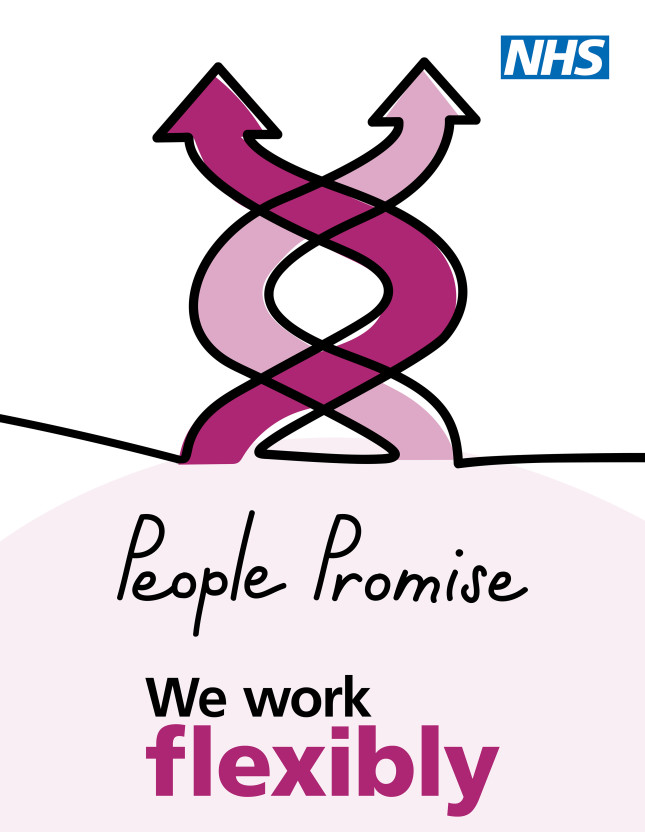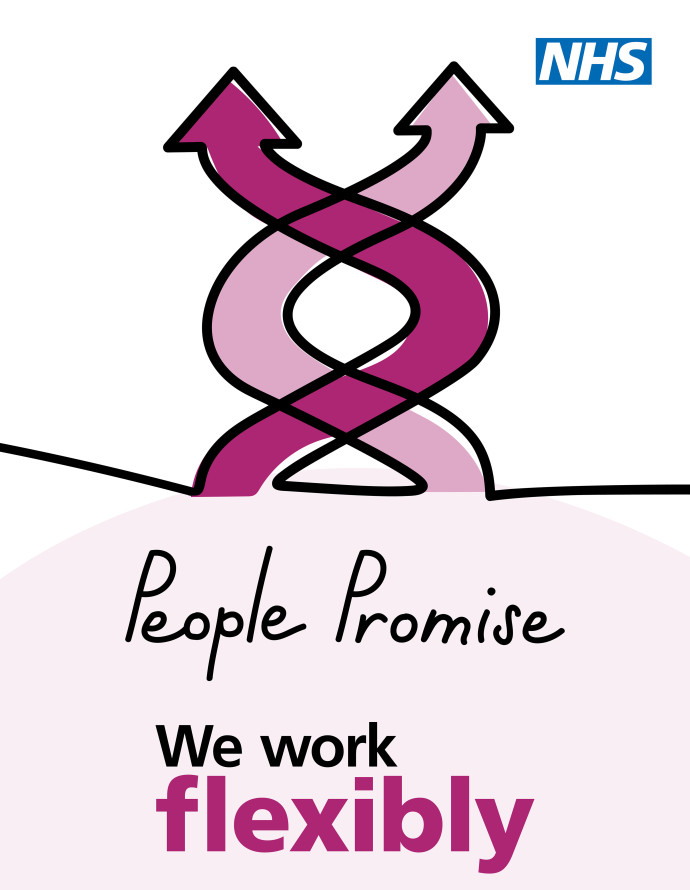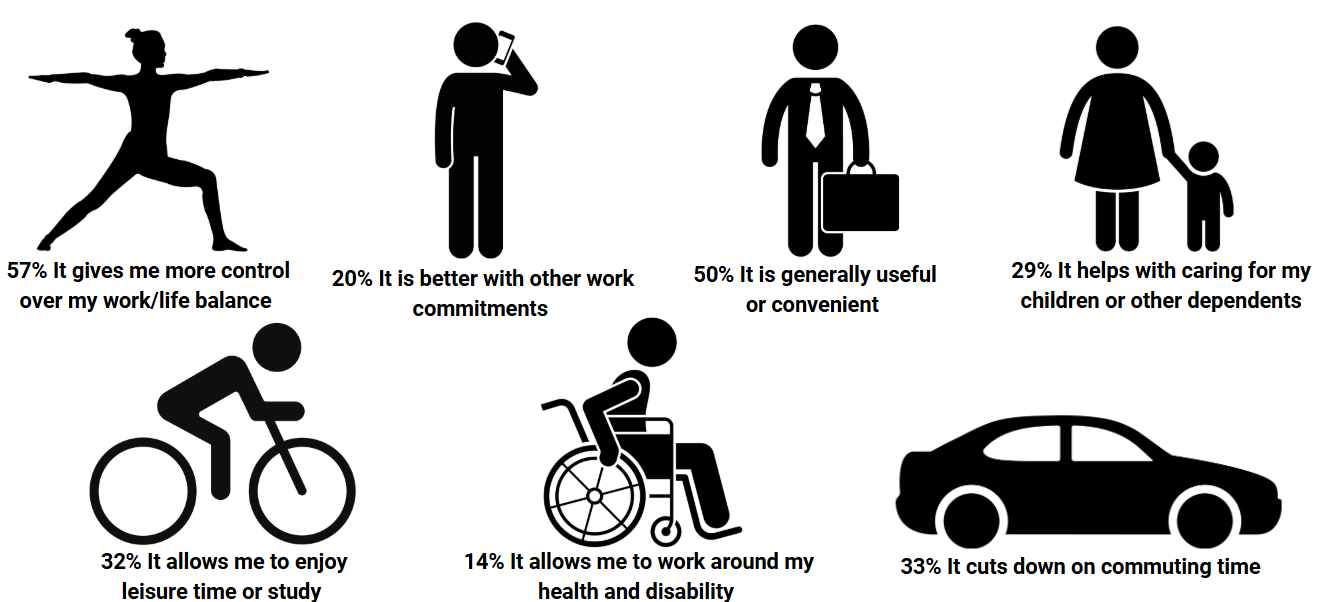Flexible Working in Primary Care
Flexible working within primary care is increasingly recognized as a vital strategy to improve job satisfaction, work-life balance, and retention of healthcare professionals. As the demands on primary care continue to rise, offering flexible working options such as part-time schedules, remote consultations, and varied shift patterns allows healthcare providers to manage their workload more effectively while maintaining high standards of patient care.
This approach not only addresses the personal needs of staff but also contributes to a more resilient and adaptable healthcare system, capable of responding to the dynamic challenges of modern medical practice.



What Type of Flexible working would be best for you?
The best type of flexible working for the NHS would involve a hybrid approach that combines remote working with variable hours and shift patterns tailored to individual needs and departmental demands.
Flexibility in scheduling could help address staffing shortages, accommodate part-time workers, and support those with caregiving responsibilities, ultimately leading to a more sustainable and responsive healthcare system.
Some of us need to be free in the school holidays to provide childcare. Others need flexibility to work out of hours to be free to take a relative to frequent hospital appointments. Annualised hours can allow someone to come back from retirement and still have long holiday breaks.
Employment law now promotes and protects flexible working
Employment law in the UK plays a crucial role in promoting and protecting flexible working arrangements within the NHS. These laws ensure that employees, including those in the NHS, have the right to request flexible working options, which can include part-time work, remote working, flexible hours, and job-sharing.
The NHS People Promise and other policy frameworks further reinforce the commitment to flexible working, aiming to make the NHS a more inclusive and supportive employer.
By protecting these rights through employment law, the NHS can better support its diverse workforce, accommodating different needs and circumstances, which is essential for maintaining high standards of patient care and ensuring the sustainability of healthcare services.
All employees have the legal right to request flexible working and employers must deal with requests in a reasonable manner. For the current employment law guidance please click here.
Benefits of Flexible Working: Employee -
Improved Work-Life Balance
- Reduced Burnout: Flexible working hours allow NHS staff to better manage their personal and professional responsibilities, reducing stress and the risk of burnout, which is particularly important in high-pressure healthcare environments.
- Time for Personal Commitments: Employees can adjust their schedules to accommodate personal commitments such as childcare, eldercare, or education.
Increased Job Satisfaction
- Autonomy and Control: Having control over one’s work schedule can lead to increased job satisfaction, as employees feel more trusted and valued by their employers.
- Better Engagement and Morale: Flexibility can improve overall employee engagement and morale, making staff feel more positive about their work and their workplace.
Enhanced Mental and Physical Health
- Reduced Stress: The ability to manage time more effectively can lead to lower stress levels, contributing to better mental health.
- Health and Well-being: Flexible working can allow more time for physical activity, medical appointments, and rest, contributing to overall better health.
Better Productivity and Performance
- Optimized Work Hours: Employees can work at times when they are most productive, leading to better performance and efficiency.
- Reduced Absenteeism: Flexibility can reduce the need for time off due to personal commitments.
Support for Diverse Workforce
- Inclusivity: Flexible working arrangements can support a more diverse workforce, including those with disabilities, parents, and those with other caregiving responsibilities, ensuring that more people can participate fully in the workplace.
Environmental and Financial Benefits
- Reduced Commuting: Flexibility, including remote working options, can reduce the need for commuting, saving employees time and money while also benefiting the environment by reducing carbon emissions.
Reasons cited by full-time employees who currently work flexibly:

Benefits of Flexible Working: Employer -
Improved Recruitment and Retention
- Attraction of Talent: Flexible working options can make the NHS a more attractive employer, helping to attract a diverse range of talent, including those who may have caregiving responsibilities or prefer non-traditional work hours.
- Reduced Turnover: Offering flexible working arrangements can increase job satisfaction, reducing staff turnover and the associated costs of recruiting and training new employees.
Increased Productivity and Efficiency
- Enhanced Performance: Flexibility often leads to higher job satisfaction, which can increase motivation and productivity. Employees who can work at times that suit them often perform better.
- Optimized Workforce Utilization: Flexible working allows the NHS to match workforce supply with patient demand more effectively, such as covering peak times with part-time or shift-based workers.
Greater Retention and Reduced Turnover
- Retention of Skilled Workers: Offering flexible working options can help retain experienced staff who might otherwise leave the NHS for roles that better suit their personal lives.
- Attracting New Talent: Flexibility is an attractive benefit that can help recruit new employees, especially those who prioritize work-life balance.
Cost Savings
- Reduced Operational Costs: Flexible working can lead to lower overheads by decreasing the need for large, permanent office spaces, particularly for non-clinical staff. Hot-desking and remote working can reduce the need for physical infrastructure.
- Lower Absenteeism: With improved work-life balance and well-being, employees are less likely to take sick days, which directly benefits the organization in terms of continuity and cost savings.
Compliance with Legal and Policy Requirements
- Alignment with National Guidelines: Flexible working supports compliance with the NHS People Plan and other national guidelines that emphasize the importance of supporting staff well-being and flexible working practices.
- Avoiding Legal Issues: Providing flexible working options helps the NHS meet its obligations under employment law, reducing the risk of legal challenges related to discrimination or unfair treatment.
Diversity and Inclusion
- Support for Diverse Needs: Flexible working arrangements can support a more diverse workforce, accommodating the needs of employees with different backgrounds, disabilities, or personal responsibilities.
- Inclusive Culture: By fostering an inclusive work environment, the NHS can benefit from a wider range of perspectives and experiences, which can enhance innovation and decision-making.
Types of Flexible Working:

